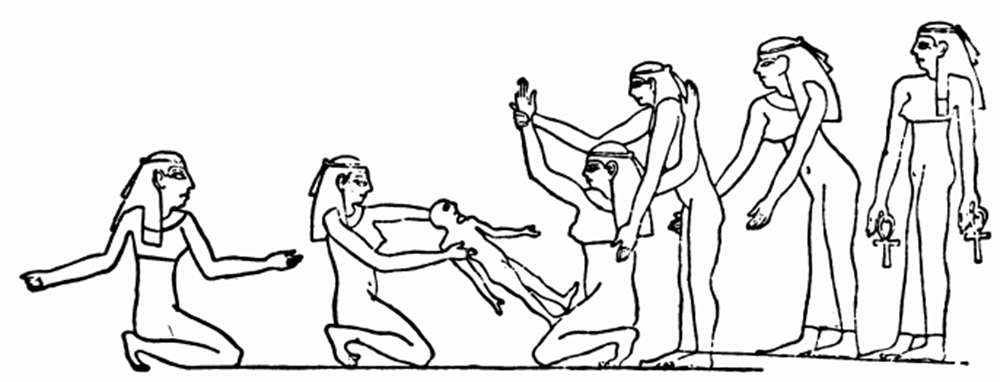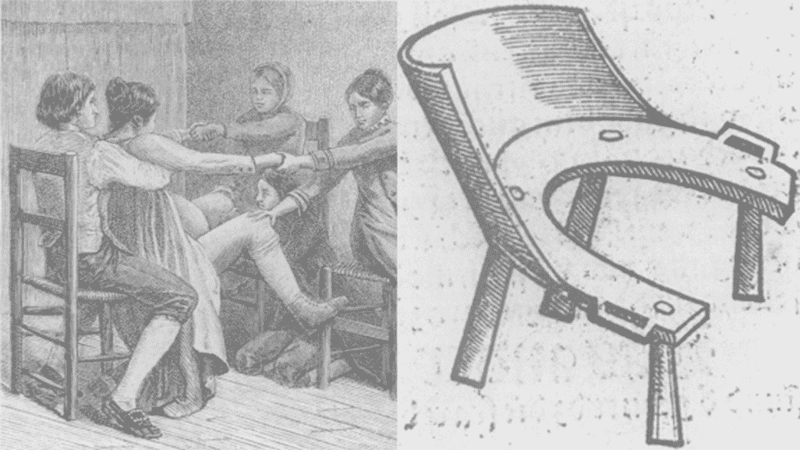There are many advantages to giving birth in positions such as squatting, kneeling, or getting on your hands and knees, rather than lying on your back. X-rays have shown that the pelvic outlet becomes wider when squatting or on your hands and knees, which helps to shorten labor.
The evidence largely suggests that lying on your back during birth prolongs labor, and slows contractions, yet the majority of women in the US give birth in this position.
So how did humans end up giving birth in this position in the first place? Well, rumor has it because a perverted king enjoyed his wives giving birth in this position so he could watch way back in 17th-century France.
The position has only been widespread in Western culture for the past 200 years, and though it did originate in 17th-century France, King Louis XIV is not actually to blame.

King Louis XIV had 22 children over his lifespan (1638 -1715). As a king, he had very good reasons to have many children, given that he needed a guaranteed heir to the throne. But he also apparently liked to watch his wives and mistresses pushing out his children.
However, the famed 17th-century French doctor François Mariceau is generally credited with influencing the change in position, which had begun to slowly gain popularity in France from the late 1500s as reclining bed birthing was both comfortable for the women and accessible for the midwives and surgeons.
It is sometimes credited to Louis because he "enjoyed watching women giving birth, he became frustrated by the obscured view of birth when it occurred on a birthing stool," Professor Lauren Dundes writes in the American Journal of Public Health. Because of this he "promoted the new reclining position."
Scholars have claimed that he liked to watch for "perverted" reasons, according to the study. The masses may have been influenced by the King, who actively promoted the birthing position, and it has since spread from there.
"The influence of the King's policy is unknown, although the behavior of royalty must have affected the populace to some degree. Louis XIV's purported demand for change did coincide with the changing of the position and may well have been a contributing influence," Dundes wrote.
Since that time the position has dominated, despite its disadvantages. It's still used today in Western cultures, not directly down to, but helped along by the fact hundreds of years ago a creepy voyeuristic king liked to watch.
An earlier version of this article was published on IFLScience in March 2018.




